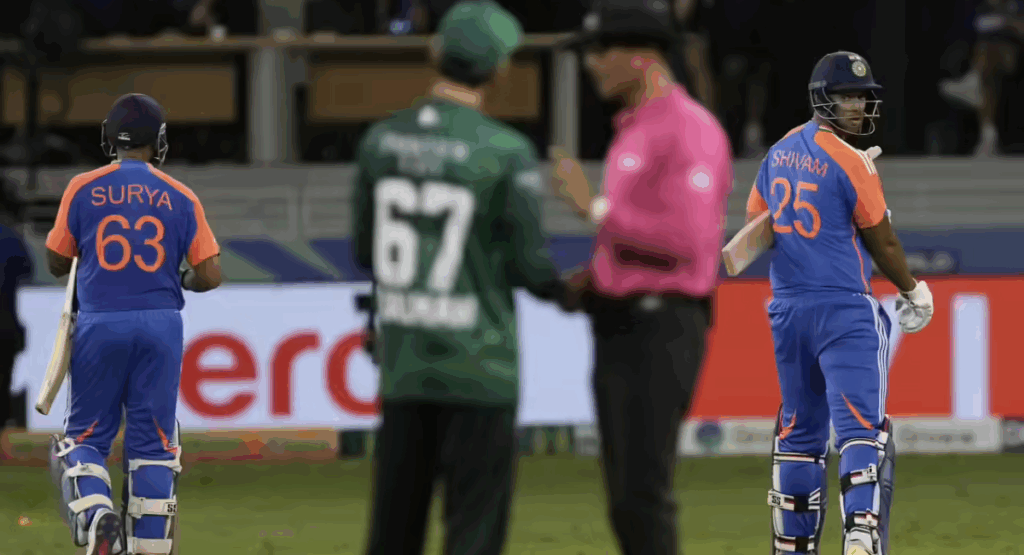
The India vs Pakistan no-handshake controversy has grabbed global attention. During the Asia Cup 2025 match in Dubai, Indian players deliberately skipped the customary post-match handshake with their Pakistani counterparts. Consequently, this decision sparked heated debates on social media and traditional news outlets. Many viewed it as a silent protest reflecting political and national sentiments.
First, the move was not spontaneous. Indian captain Suryakumar Yadav and his team received instructions from higher authorities, including the BCCI and the Indian government. They were asked to make a strong statement through their conduct. Accordingly, Yadav later confirmed that the team acted in alignment with these directions. He emphasized that their gesture reflected solidarity with the victims of the Pahalgam terror attack.
Next, Pakistan reacted swiftly and firmly. The Pakistan Cricket Board (PCB) officially protested India’s actions, calling them unsporting and against cricket’s spirit. PCB team manager Naveed Akram Cheema filed a formal complaint with match referee Andy Pycroft. Notably, during the toss, Pycroft had advised Pakistan captain Salman Ali Agha not to initiate a handshake with Yadav. As a result, Agha skipped the post-match presentation ceremony, further escalating tensions.
Moreover, the incident illustrates how politics can influence sports. Critics argue that cricket should remain a neutral platform, promoting goodwill and unity. They believe that skipping a handshake can harm the sport’s reputation. On the other hand, supporters of India’s stance insist that it was a necessary action. They view it as a reflection of national sentiment and solidarity with the terror attack victims.
During the match itself, India won convincingly. However, the focus quickly shifted from the game to the handshake controversy. Analysts pointed out that such incidents could impact international cricket relations. Meanwhile, fans expressed divided opinions online. Some praised the Indian team for standing firm, while others questioned mixing politics with sport.
Interestingly, Suryakumar Yadav managed the situation with professionalism. He avoided inflammatory comments but clearly explained the team’s stance. Consequently, he maintained respect while sending the intended message. Simultaneously, the PCB’s protest attracted widespread media attention. Sports channels and newspapers debated whether India’s gesture crossed ethical boundaries.
In conclusion, the India vs Pakistan no-handshake controversy has become more than a cricketing incident. It highlights the complex interplay between sports, politics, and national sentiment. Therefore, this episode reminds fans that cricket is not just a game; it often mirrors larger socio-political realities. As the Asia Cup continues, discussions about this silent protest will persist. Ultimately, this moment may remain a defining chapter in India-Pakistan cricket history, shaping perceptions on and off the field.

